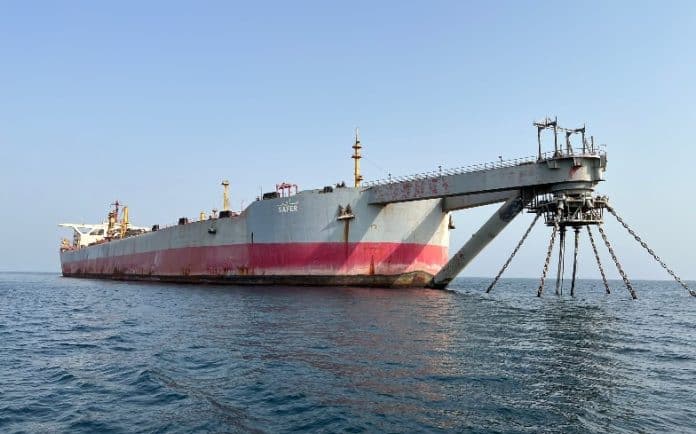This is a scenario reminiscent of a Hollywood blockbuster: A dilapidated tanker, doubling as a storage unit for 1.14 million barrels of oil, floats off the coast of Yemen, a country ravaged by war. The vessel threatens to sink or explode, potentially causing the most devastating oil spill in history if no action is taken.
On Tuesday, 25 July, UN Secretary-General António Guterres announced, “The United Nations has begun an operation to defuse what might be the world’s largest ticking time bomb”.
The UN procured another tanker from Euronav, a Belgian shipping company. The “Nautica,” rechristened as Yemen, is to drain the tanks of the SFO Safer, a ship nearing its half-century mark and left without maintenance since 2015. This undertaking marks the culmination of approximately two years of political groundwork, fundraising, and project planning.
“In the absence of anyone else willing or able to perform this task, the United Nations stepped up and assumed the risk to conduct this very delicate operation,” clarified the head of the UN. The intricate operation is anticipated to span approximately twenty days, requiring unyielding political maneuvering in a nation shattered by eight years of conflict.
The oil transfer between vessels is pivotal to circumventing an environmental and humanitarian catastrophe of monumental scale. Indeed, without intervention, the SFO Safer risks rupturing or exploding, potentially discharging up to four times the quantity of oil spilled during the Exxon Valdez disaster in Alaska in 1989.
The UN approximates that the cleanup of such an oil spill could amount to $20 billion. Entire populations, as well as local flora and fauna, risk exposure to lethal toxins.
Devastating ecological and economic implications
Furthermore, all fishing activities in this part of the Red Sea could cease, causing the sudden disappearance of hundreds of thousands of jobs. Major ports, including Hodeidah and Salif, may be compelled to shut down indefinitely, depriving millions of individuals of food, fuel, and essential commodities.
Maritime transport routes to the Suez Canal might be disrupted for weeks.
The UN has thus far amassed $115 million for this operation. The Secretary-General expressed his gratitude on Tuesday, “to the many countries, corporate and philanthropic donors as well as ordinary citizens for pledging funds for this critical part of the operation.”
Pumping is just the first step
The UN has rallied a team of top-tier global experts specializing in maritime law, oil spill response, rescue operations, maritime engineering, naval architecture, insurance brokerage, chemistry, and surveying, among others.
The ship-to-ship oil transfer is a substantial component of the operation, but it represents just a fraction of the journey. The subsequent pivotal stage involves arranging the delivery of a special buoy for secure mooring of the replacement vessel.
The UN chief reminded, “we will need about $20 million to finish the project, which includes cleaning and scrapping the FSO Safer and removing any remaining environmental threat to the Red Sea.”
Additional information:




